Those who share are happier – this is confirmed by a study by the University of Lübeck. It is certainly a fine move not to cling too much to one’s possessions. If you live with your partner or a large family, you are used to sharing. Here you often get uncomprehending looks if you don’t want to share the deodorant roller and nail scissors.
The best tips and tricks for a well-organized kitchen can be found here! (Scroll down to the article.)
We would do well to reserve some things just for ourselves – not out of stinginess or pettiness, but for the sake of our health. If you often have to defend your hairbrush, headphones, etc. against your partner or family members, the following list provides you with sound arguments against partial coercion.
1. Curd soap
 © Reddit / Ejmartin99 via Imgur, © Reddit / Death_By_Sexy via Imgur
© Reddit / Ejmartin99 via Imgur, © Reddit / Death_By_Sexy via Imgur
It sounds paradoxical: of all things, the good old curd soap should be a germ carrier? In fact, germs can build up on the damp surface of the soap – especially if it is in a soap dish that does not allow the water to drain. The more people use the soap, the higher the germ load on the soap. Briefly washing the bar of soap under running water will help rinse off the bacterial film. The use of liquid soap is recommended for households with several people and for the kitchen. In this case, however, it is important to regularly clean the head of the soap dispenser, on which many germs are also deposited due to frequent handling.
2. towels

Towels are a perfect breeding ground for germs and bacteria. Not a nice idea, since we dry ourselves off and rub ourselves off with them every day. In order not to increase the germ density on the towels even more, everyone should use their own. Also, towels should – if possible – not be dried and stored in the bathroom, because the warm, wet air in the bathroom creates the ideal climate for microorganisms. It is best to change all towels twice a week and wash them at at least 60 ° C. This is how you avoid skin diseases like eczema or fungal infections.
3. Nail scissors and nail clippers
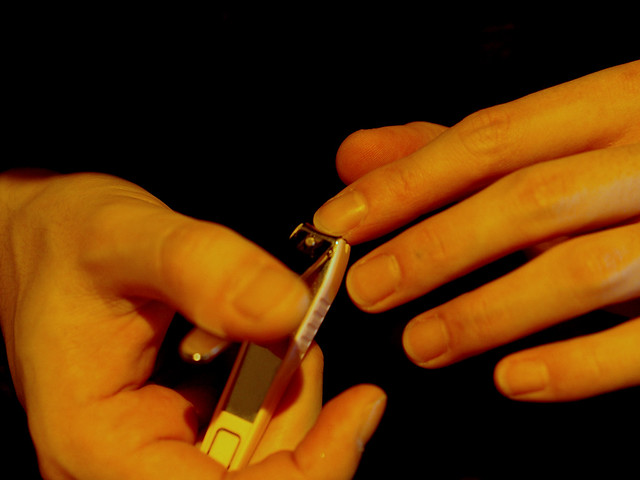
Black-edged nails are not a pretty sight. But the really dangerous dirt under the fingernails is not always visible. Bacteria, fungi and even viruses lurk even under well-cared for “claws”. The personal nail care set should therefore be taboo for others – or adequately disinfected before being used by others.
4. Tweezers
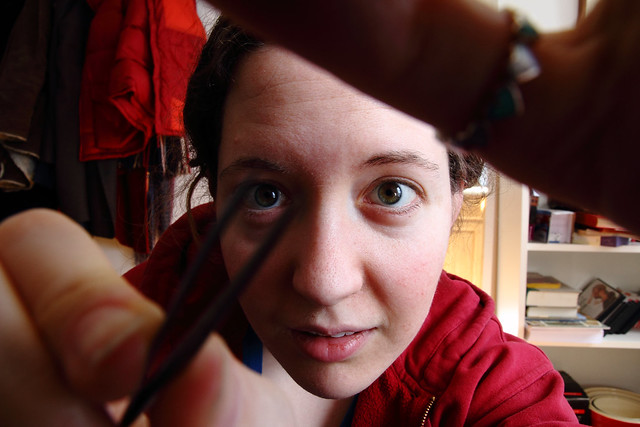
The partial ban on nail scissors should apply even more to tweezers. If these are used not only to shape the eyebrows, but also to remove ingrown hair, for example, tweezers can come into contact with blood. When using foreign tweezers, caution is essential to avoid the risk of infection.
5. Loofah sponges
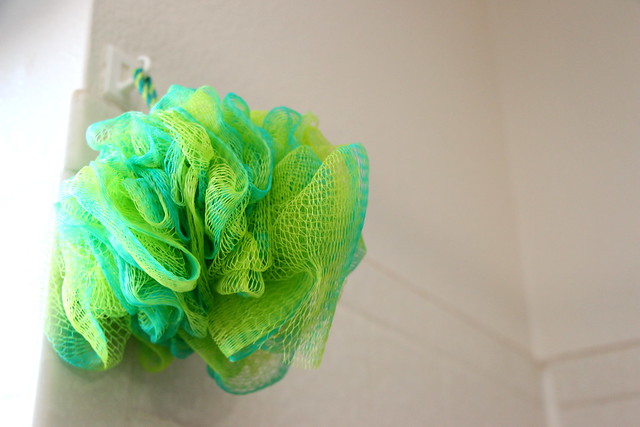
Loofah sponges are well suited to stimulate blood circulation and remove dead skin cells. However, they dry very slowly and are therefore a perfect breeding ground. Doctors therefore advise against using loofah sponges. Cotton washcloths are a more hygienic alternative because they dry better and are easier to clean. If you still don’t want to do without loofahs, it is best to let them dry in the fresh air after use and change them regularly. As with towels and washcloths, the motto here is: Don’t share!
6. Hairbrushes
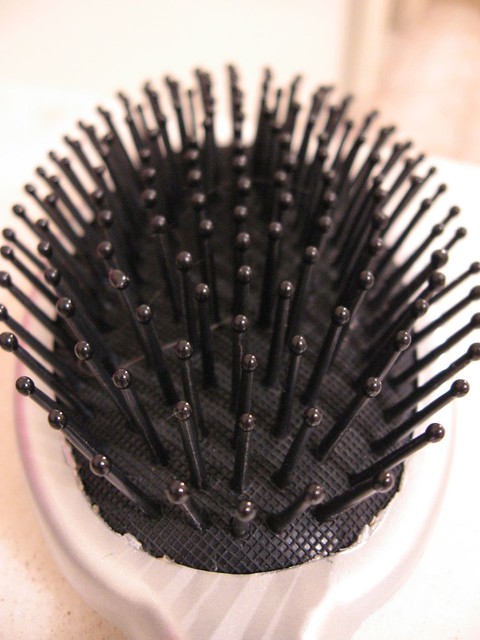
Few of them have a problem with sharing the hairbrush. But even if there are fewer germs lurking on the bristles than on sponges or towels, you should not use third-party brushes. Over time, flakes of skin are deposited between the bristles, which, in combination with sebum or residues from care products, can become a germ trap. Regular cleaning of the brush is therefore urgently recommended. It is best to first remove the hair in between and then rinse the bristles with warm water and a little shampoo. Particular care is required with children in the household who like to bring lice or itch mites with them from daycare.
7. Headphones

The inside of a seashell on the beach is white, smooth, and flawless. You don’t have to be an ENT doctor to know that an auricle looks different. Headphones that are hung in the auricle or inserted directly into the ear canal will instinctively not be shared with others. In addition, the small plugs are often touched or sweat off during exercise. This is why you should clean them regularly if you want to avoid inflammation or fungal infection. Or you can use the somewhat clunkier models that rest on the ear cups – they are less hygienic.
8. Deodorant roller
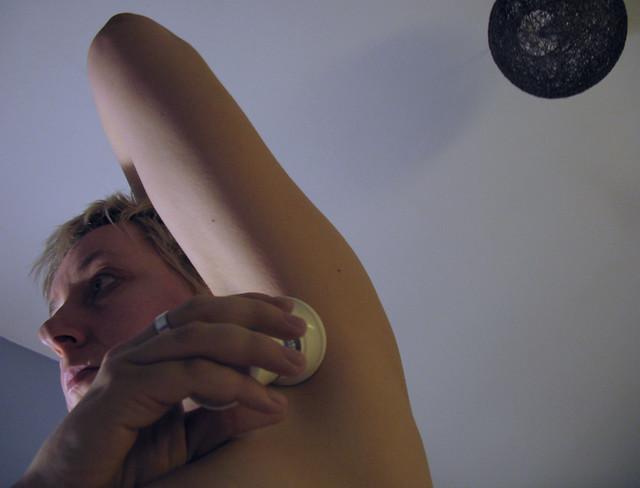
The armpits are a real Eldorado for bacteria and germs. There are two reasons for this: on the one hand, the sweat cannot dry there and, on the other hand, it is nice and warm. So you can imagine that a lot will build up on the heads of roll-on deodorants over time – after all, most deodorants are not antibacterial. In addition, many people shave under their armpits, which makes the skin particularly susceptible to “intruders”. If you want to share your scent with others, you should use deodorant from the spray can.
9. Labello
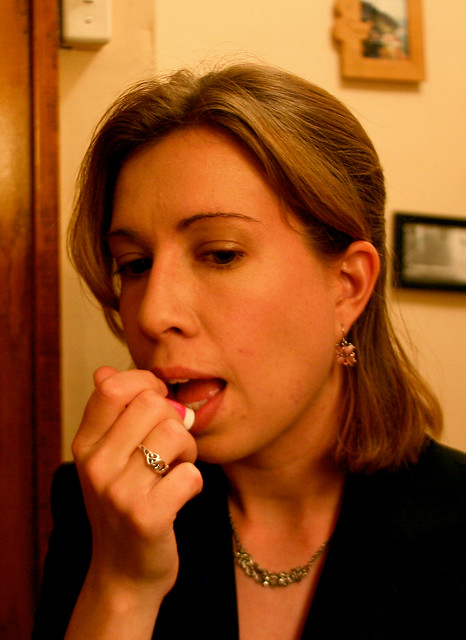
In the winter months, very few go outside without a Labello in their pockets. After all, the cold air really clogs your lips. But it is better not to borrow a care pen. There are fine blood vessels under the thin skin of the lips. If the skin is also brittle, viruses on the pen – for example the herpes virus – can get directly into the bloodstream.
10. Toothbrush
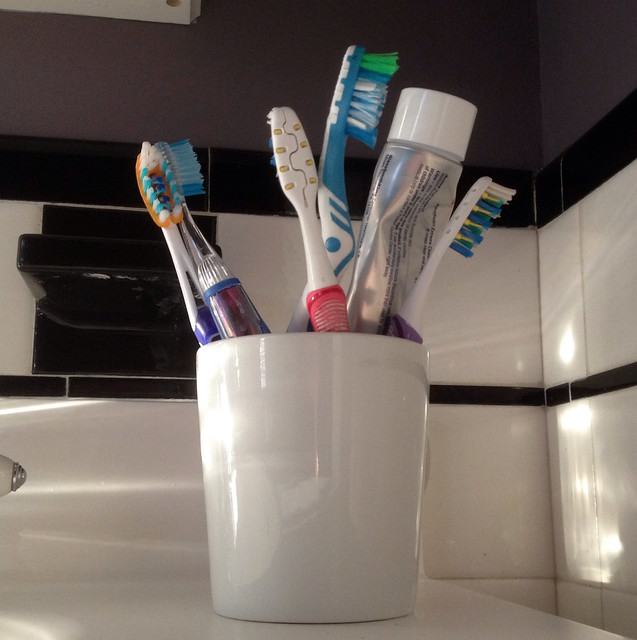
No matter how close you are, the toothbrush is too private for most to share. Most of the germs on the brush are harmless, but some viruses can also romp around on the bristles – for example flu or hepatitis pathogens. It is not for nothing that doctors advise to dispose of the toothbrush immediately after a flu or cold. Caries and periodontal disease can also be transmitted by sharing a toothbrush. Therefore, strictly speaking, toothbrushes should not be stored next to each other. You should also avoid models with natural bristles: They are a germination paradise.
As you can see, a joy shared is not always a joy doubled. The next time your partner wants to share your toothbrush or towel, show them this article.
Source: Bright Side
Thumbnails: © Reddit / Ejmartin99 via Imgur © Reddit / Death_By_Sexy via Imgur